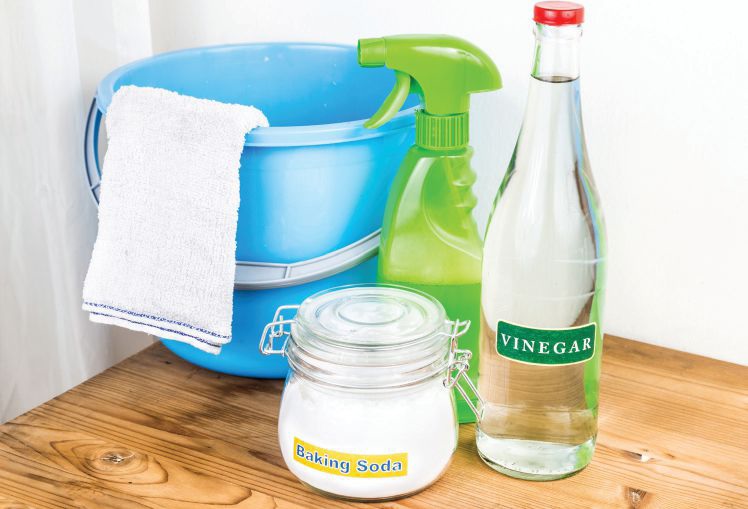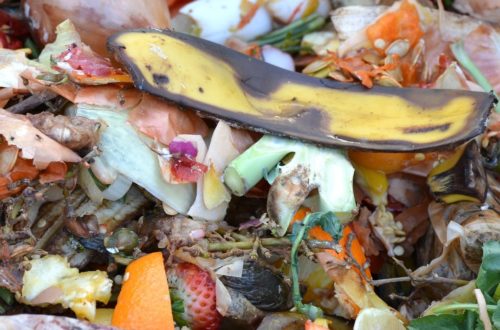As more people begin to recognize the detrimental effects of plastic pollution, many of us wonder how we can help make a difference. Have you heard about the zero waste lifestyle? Zero-waste living is when you strive to reduce your trash output by choosing reusable over disposable products, composting organic waste, and recycling materials.
The zero-waste movement is gaining popularity as a way to reduce our reliance on disposable, single-use items. Still, for those of us who are just starting out, the idea of going completely waste-free can seem daunting. While making the switch to sustainability isn’t without challenges, it’s definitely doable with a few tweaks to your routine. Here are some of our tips for adapting to a zero-waste lifestyle:
Start Small
Focus on one area of your life and make changes there. Then, once you feel comfortable that you’ve got the hang of things, gradually start expanding your zero-waste efforts to other areas of your life.
There’s one heck of an inspiring quote by Anne Marie Bonneau circulating the zero-waste community: “We don’t need a handful of people doing zero waste perfectly. We need millions of people doing it imperfectly.” Remember this on your journey towards zero waste; rather than trying to do everything all at once, take baby steps and implement sustainable changes into your routine as you’re able.
Choose Reusable Over Disposable
When given a choice between a reusable or disposable item, always go for the former. This switch will not only help reduce your overall waste output, but it’ll also save you money in the long run. Not to mention, reusable products are often sturdier and better quality than their disposable counterparts.
Make a list of the items you use daily and find alternatives that don’t create waste. For example, buy a reusable water bottle to carry with you wherever you go instead of using plastic water bottles. This is one of the most straightforward changes you can make that significantly impact the amount of waste you create.

For many people, the kitchen is the best place to start because it’s where we generate the most waste. First, avoid using disposable items whenever possible. Disposable items such as straws, utensils, paper plates, and plastic drinkware create a lot of unnecessary waste. They can be easily replaced with reusable alternatives. While this may mean more dirty dishes in the sink, it’s worth it, considering how much waste you’ll avoid.
Quick Tips: Invest in cloth dish towels and napkins to help reduce paper towel usage. For storage, consider using mason (glass) jars, reusable silicone bags, or beeswax wraps instead of plastic wrap!
Avoid Packaging & Buy In Bulk
Another practical way to reduce your waste is to avoid packaging altogether. Whenever possible, opt for products that come without packaging or that use minimal packaging. This can be tricky since many products nowadays come in single-use plastic packaging. But with some creativity and effort, you’ll have it figured out in no time!
Explore bulk options. When you buy items in bulk, you cut down on the amount of packaging waste you create. For example, choose loose fruits and vegetables instead of those that come pre-packaged. Some grocery stores even allow customers to bring in their own containers for meats and cheeses or to fill up with bulk items like grains, nuts, and dried fruit. Plus, buying in bulk is often cheaper! Win-win.
Quick Tips: Staples like flour, rice, oatmeal, and coffee beans can all be bought in bulk. When it comes to produce, see if you can buy from farmer’s markets or local grocers instead of big box stores.
Reduce Your Food Waste
Sadly, food waste is common in the United States; according to the USDA, we throw out 30-40% of our food supply yearly. Yikes! Not only is this a massive waste of resources, but it also generates a lot of methane gas, contributing to climate change. Thankfully, some tried-and-true methods reduce food waste in your home.
First, try to only buy what you need and will actually use. This may result in more trips to the grocery store, but it’ll help you avoid buying things that will just end up spoiling in your fridge.
Second, get creative with your leftovers! If you want a little inspiration, there are tons of recipes out there that can help you turn last night’s dinner into a whole new meal. And get yourself into the habit of composting your food scraps when you’re done eating. This goes a long way toward reducing methane gas emissions and returning vital nutrients to the soil.
Quick Tips: Meal planning can help you reduce food waste because it allows you to make a list of everything you need before you go grocery shopping. Only make as much food as you know you’ll eat when cooking.
Make Your Own Cleaning Products
Many store-bought cleaning products are loaded with chemicals that can harm your health and the environment. Fortunately, many recipes online for DIY cleaning supplies use natural ingredients like vinegar, baking soda, and essential oils. These recipes are usually cheaper than store-bought products and just as effective.
For an all-purpose cleaner, mix equal parts of water and vinegar. Next, sprinkle in a few drops of your favorite essential oil, like lemon or lavender, if you want it to smell nice! Then just put the solution in a spray bottle and use it like any other cleaning product. Another great option is using baking soda for scrubbing surfaces like countertops, sinks, and bathtubs.
Quick Tips: When making your own cleaning products, always test them on a small area first to ensure they won’t damage your surfaces.
Shop Secondhand
You can find many everyday items secondhand, from furniture to clothes to kitchenware. Shopping secondhand helps reduce your environmental impact since you’re reusing products that would otherwise end up in a landfill. Plus, it’s usually cheaper than buying new stuff!
And luckily, there are plenty of ways to find secondhand items. You can check out your local thrift stores and garage sales or browse online marketplaces and local buy-nothing groups. These are all excellent places to find gently used items at a fraction of the cost.
Quick Tips: When shopping secondhand, try to avoid buying things that are made of synthetic materials like polyester or nylon. These materials take a long time to break down and release harmful chemicals and microfibers into the environment.
Parting Thoughts
As you can see, we have countless ways to make our lifestyles more sustainable. And the best part is, most of these changes are easy to implement! So keep making small changes in your day-to-day life, and you’ll be surprised at how much of a difference you can make. Every action we take counts when it comes to saving the environment; you won’t regret it!
Zero Waste is a waste + recycling management company. And we are built to think about waste differently. Our success isn’t dependent on landfill dumping. This provides us the freedom to evaluate our waste impact and deliver real solutions, have real conversations, and make real contributions to reducing waste.
It’s a journey. But together, we can do better. Join us as we embark on a mission to educate about waste.
For more info: www.zerowaste.com






